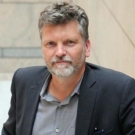Speaker

Sean Carroll
President and CEO
ANERA
Moderator
Event Summary
Washington, DC — August 23, 2018 — Arab Center Washington DC (ACW), a nonprofit, independent, and nonpartisan think tank that focuses on US policy and developments in the Arab region, hosted a discussion on August 23, 2018 at its offices titled “Spotlight on Gaza: Humanitarian and Political Update.” The speakers were Sean Carroll, president and CEO of American Near East Refugee Aid (Anera), and Khalil Jahshan, executive director of ACW.
“Gaza is on the brink of a real catastrophe,” Sean Carroll said in his introductory remarks, and the situation keeps getting worse. He cited some of the current indicators of this dire situation: less than four hours of electricity per day, meager fuel reserves for emergencies, untreated sewage water going into the sea, 95-97 percent of the water unsafe and not potable, serious food insecurity, substantially decreased assistance to internally displaced persons, and unemployment at 57-59 percent. This situation has been exacerbated by an overwhelmed health sector, especially with the recent spike in casualties and injuries from the “Great March of Return” protests since March in which 172 people have been killed and 8,000 hospitalized, half of them wounded by live ammunition,
Carroll spoke about Anera which is 50 years old this year. With 18 staff members in Gaza, the organization has been working on a major $100 million community development project; however, he said that about $22 million of that will not materialize because of US aid cuts, meaning that hundreds of thousands of people will not be getting the assistance they need in terms of clean water, schools, health clinics, and many other services. “We are extremely worried about the US funding freeze,” he said. He explained that Anera is providing humanitarian aid as well as development and small- and large-scale agricultural assistance in addition to help in desalination and sewage treatment plants.
He expressed some guarded optimism. “If the shackles were let up, if the blockade were ended, if there were some reasonable semblance of movement of goods and people, things could change dramatically,” Carroll stated. He highlighted the premium people in Gaza place on education; this, combined with their productivity, he said, and additional aid from the Gulf states and concerned individuals, especially diaspora Palestinians, will help change the current impasse.
Khalil Jahshan analyzed the direct talks between Hamas and Israel, mediated by Egyptian intelligence services in Cairo, that have created an acceleration in diplomatic movement regarding Gaza over the past three weeks. He posed five principal questions: What motivated Hamas and Israel to talk? What is the emerging plan for Gaza? What are the difficulties faced by the parties? What is the agreement? Who are the winners and losers?
Even Israeli experts have admitted that through the Gaza protest march, Hamas has achieved a victory in the PR war, Jahshan stated; however, the humanitarian cost has been too high. Both sides have found themselves exhausted because of the confrontation and felt compelled to start negotiations. As for the plan for Gaza, in the short term it comprises a ceasefire between Hamas and Israel, reopening crossings and removing restrictions on prohibited goods, increasing the supply of fuel and electricity, lifting the Israeli air, land, and sea blockade and Palestinian Authority (PA) sanctions on Gaza, rehabilitating Gaza’s infrastructure, discussing a prisoner swap, and reviving talks between Israel and the Palestinians as well as intra-Palestinian agreements. All these actions would greatly relieve the humanitarian situation in Gaza.
Jahshan explained that all parties—Hamas, Fatah, the PLO, Egypt, and Israel—have placed conditions on the negotiations. Hamas wants to treat any agreement separately from economic assistance and from prisoner negotiations. Fatah and the PLO insist that reconciliation with Hamas be part of the ceasefire deal. Egypt wants to remain in control of the outcome of the talks and urges economic projects, such as an airport and power plants, to be built on Egyptian territory. Israel demands a prisoner swap and an enforceable ceasefire.
“Hamas definitely emerged as the winner of this whole diplomatic game,” asserted Jahshan. He said their message was that “You can achieve some political gains through military resistance” and this is “the opposite message of Ramallah and Fatah and Abbas—so they [Hamas] have the upper hand.” This fact forced Israel to reopen crossings and expand the fishing areas in Gaza, goals that the PA and Fatah could not achieve. In addition, Jahshan said, “Hamas succeeded in focusing world attention, including Arab attention, on the miserable economic conditions that people have endured” in Gaza; now $650 million will be arriving to rebuild Gaza’s infrastructure. Finally, he noted, “Hamas succeeded in shifting the balance of power from Ramallah to Gaza. Abbas and Fatah today are totally marginalized,” so Hamas will have an expanded role in the negotiating process. This may open the possibility for renewed civil strife in the West Bank and East Jerusalem, Palestinian areas that, he said, may be headed toward more poverty and chaos.
Event Photos

